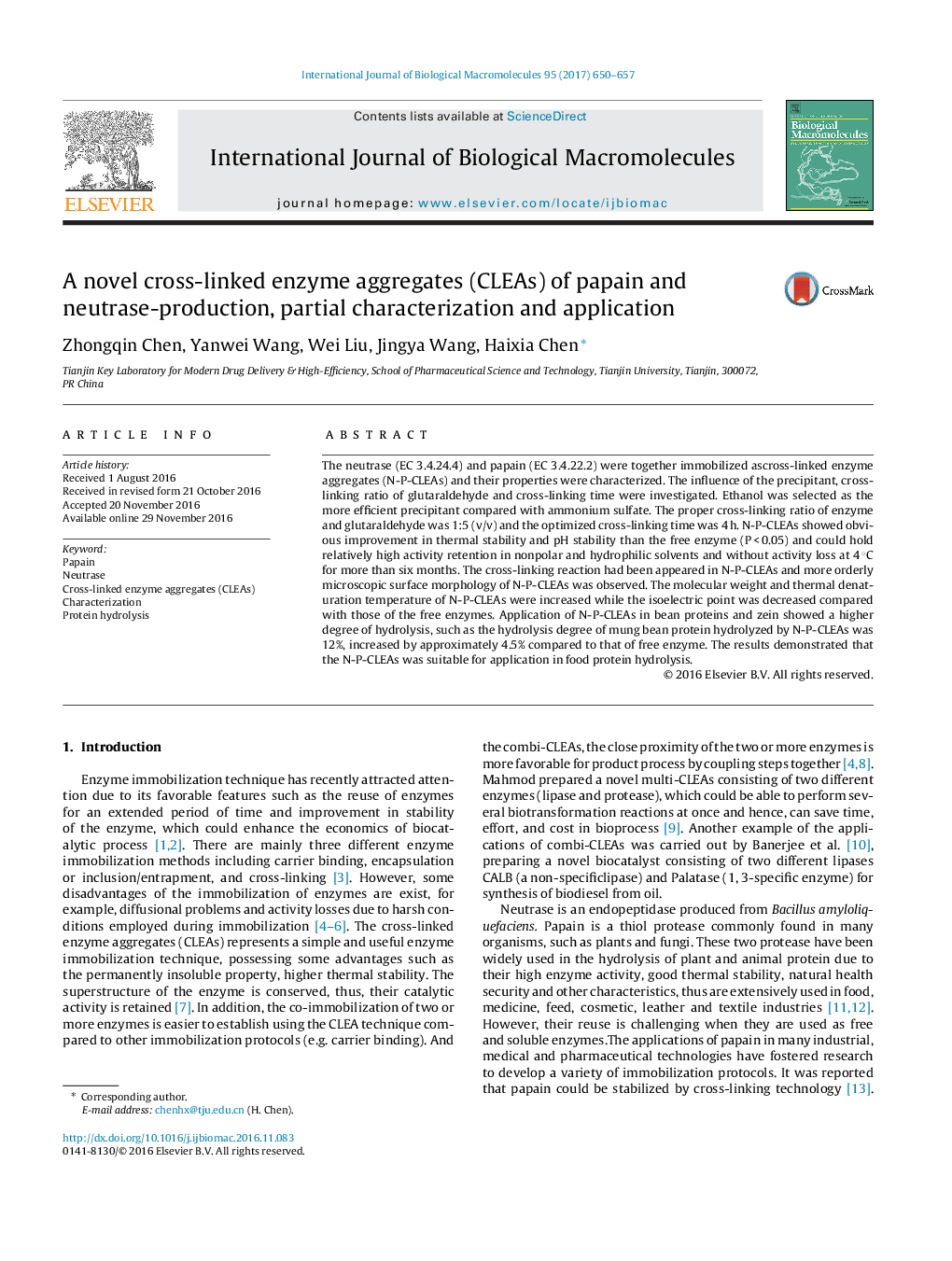| Article ID | Journal | Published Year | Pages | File Type |
|---|---|---|---|---|
| 5512447 | International Journal of Biological Macromolecules | 2017 | 8 Pages |
â¢A novel Cross-linked enzyme aggregates (CLEAs) of papain and neutrase have been prepared.â¢Cross-linking conditions of P-N-CLEAs have been optimized to achieve high enzyme activity.â¢Cross-linking improves stability of the enzyme papain and neutrase.â¢P-N-CLEAs had good application in both water and ethanol soluble protein hydrolysis.
The neutrase (EC 3.4.24.4) and papain (EC 3.4.22.2) were together immobilized ascross-linked enzyme aggregates (N-P-CLEAs) and their properties were characterized. The influence of the precipitant, cross-linking ratio of glutaraldehyde and cross-linking time were investigated. Ethanol was selected as the more efficient precipitant compared with ammonium sulfate. The proper cross-linking ratio of enzyme and glutaraldehyde was 1:5 (v/v) and the optimized cross-linking time was 4 h. N-P-CLEAs showed obvious improvement in thermal stability and pH stability than the free enzyme (P < 0.05) and could hold relatively high activity retention in nonpolar and hydrophilic solvents and without activity loss at 4 °C for more than six months. The cross-linking reaction had been appeared in N-P-CLEAs and more orderly microscopic surface morphology of N-P-CLEAs was observed. The molecular weight and thermal denaturation temperature of N-P-CLEAs were increased while the isoelectric point was decreased compared with those of the free enzymes. Application of N-P-CLEAs in bean proteins and zein showed a higher degree of hydrolysis, such as the hydrolysis degree of mung bean protein hydrolyzed by N-P-CLEAs was 12%, increased by approximately 4.5% compared to that of free enzyme. The results demonstrated that the N-P-CLEAs was suitable for application in food protein hydrolysis.
Graphical abstractDownload high-res image (131KB)Download full-size image
